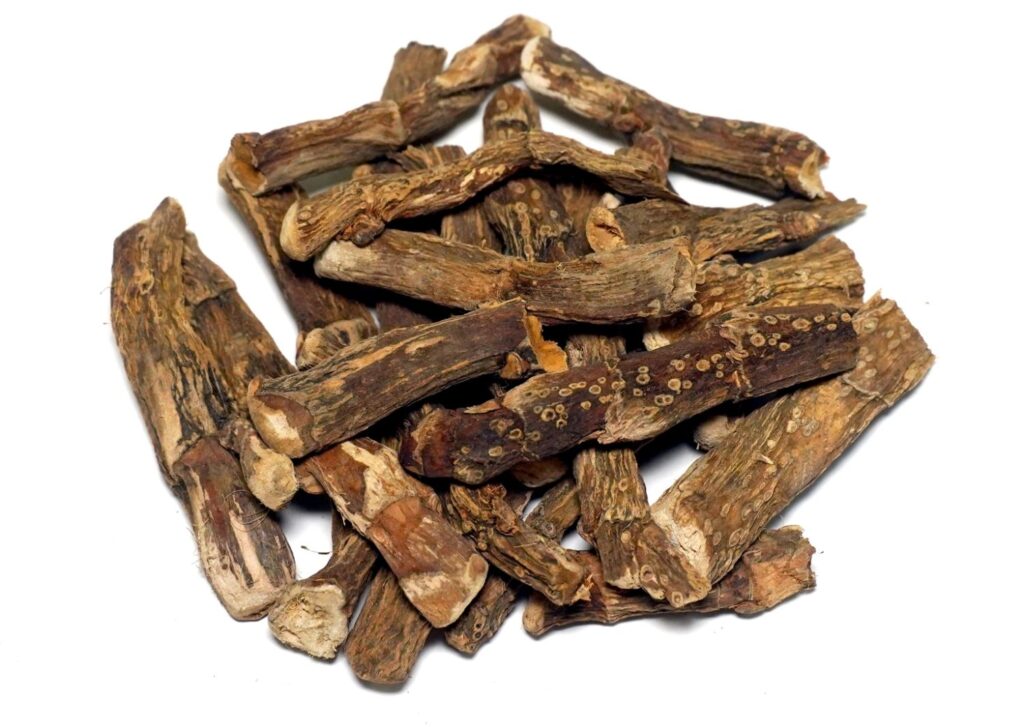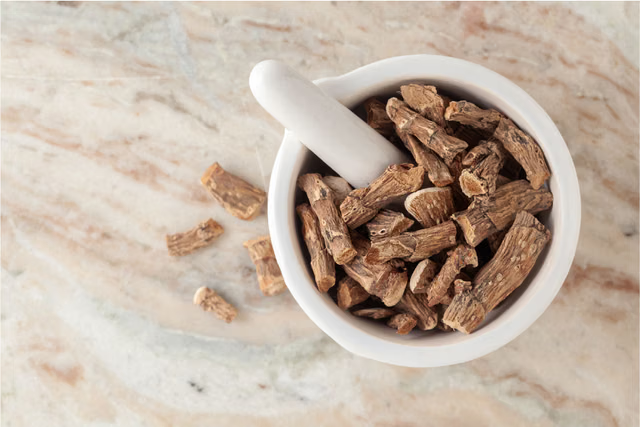INTRODUCTION:
Sweet Flag, botanically known as Acorus calamus, is a semi-aquatic, perennial herb belonging to the family Acoraceae. The plant grows naturally along the edges of streams, rivers, and marshy areas in India and many parts of Asia, Europe, and North America.In traditional systems of medicine such as Ayurveda, Unani, and Siddha, Sweet Flag has been valued for its aromatic rhizome, which possesses numerous therapeutic properties. It is renowned as a brain tonic, nervine stimulant, digestive aid, and expectorant.

Sanskrit – Vacha
Hindi – Bach
Punjabi – Gurbach
English – Sweet Flag
Marathi – Vekhand
Gujarati – Vaj
Tamil – Vasambu
Telugu – Vadaja
Malayalam – Vayambu
Kannada – Baje
Bengali – Bach
Urdu –بچ
HEALTH BENEFITS

Stimulates appetite:
Gurbach is traditionally used to stimulate appetite.
Reduces acidity and bloating:
It can help reduce excess stomach acid and alleviate gas and bloating.
Relieves spasms:
It may promote relaxation of stomach spasms.
Reduces inflammation:
The herb has anti-inflammatory properties that may help manage general inflammation.
Soothes joints:
Applied externally, the powder can provide relief from pain and inflammation in rheumatic joints.
Improves cognitive function:
It may help improve memory and cognitive function.
Supports mental balance:
It can have a positive effect on the nervous system, which may help in cases of anxiety or depression by controlling abnormal brain activity.
Supports hair growth:
When applied externally, it can promote hair growth and support a healthy scalp.
Boosts immunity:
Some sources suggest it can help boost the immune system.
SIDE EFFECTS:

Cancer risk:
Certain species of Acorus calamus contain varying levels of beta-asarone, a chemical shown to cause cancer in animal studies. It is difficult to know if a product is from a beta-asarone-free variety.
Kidney damage:
Ingesting Gurbach has been linked to kidney damage.
Neurological effects:
The plant can act as a central nervous system depressant. In addition to potential sedation and sleepiness, high doses may cause dizziness, confusion, or seizures.
Cardiovascular issues:
It may lower blood pressure and heart rate, which could be dangerous for people with pre-existing heart conditions or low blood pressure.
Pregnancy and breastfeeding:
It is considered unsafe for pregnant and breastfeeding women and should be avoided. The chemical compounds may have a teratogenic effect, potentially causing developmental defects.
HOW TO USE:
Powder:
Dry the root and grind it into powder. Take a small pinch with honey or warm water for memory, digestion, or cough.
Paste:
Make a paste of the root with water. Apply on wounds or skin infections.
Chewing:
A small piece of the root can be chewed to freshen breath and improve speech.
Decoction (Herbal Drink):
Boil pieces of the root in water to make a mild herbal drink for digestion or respiratory problems.
With Milk or Honey:
Mix a tiny amount of powdered root in milk or honey for better brain function and calming the mind.




